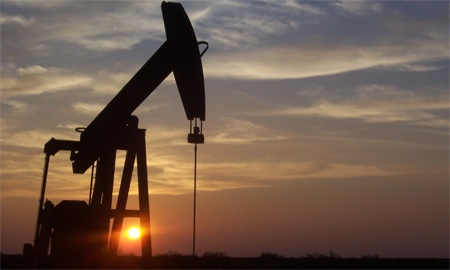The discovery in 2007 of the Jubilee oil deposit off the coast of Ghana dramatically changed the outlook for the country’s energy policy objectives. The government already had a plan to become a regional electrical power-generation hub, by using imported natural gas from Nigeria.
Now, with the help of foreign direct investment, the government has much more ambitious plans of fueling power plants with its own oil and gas, and using revenue from oil exports to take advantage of its non-petroleum mineral wealth. The country hopes its stable democracy and legal framework will help attract investors, especially from the U.S., says Inusah Fuseini, Ghana’s Deputy Minister of Enegy for Power.
“The U.S. ought to be a key ally when it comes to harnessing our potential as a developing country,” he says. “We should take inspiration from the democratic relations with the U.S. Ghana is now running a multiparty democracy and Ghana’s executive President is modeled on the lines of the American presidency, where the President derives his mandate directly from the people.”
The government’s plans to build up the energy industry are still developing, but many aspects of it are already clear. The country’s electricity generating capacity of 2026 megawatts is targeted to be raised to 5000 megawatts by 2015. The energy ministry is also studying the possibility of building up a refining and petrochemical industry, though the government is very much aware of what must be done before that process can start.
“We are building capacity in different sectors,” explains Emmanuel Armah-Kofi Buah, the Deputy Minister of Energy for Petroleum. “We need assistance to partner with our education institutions, improve infrastructure and improve the training of more petrochemical engineers and more people to study the oil and gas industry. We need to train more geologists and economists and legal people in the industry. We also need the capacity to strengthen our institutions.”
The project to extend Ghana’s, and West Africa’s, power grid is already underway. Currently 67% of Ghana’s residents have access to electricity, and the network is being enlarged, with the goal of reaching 100% by 2020.
Power plants are being planned and built, with one at Sunon Asogli recently completed, fueled from a gas line connecting Nigeria’s oil fields to the new generating station. Transmission lines need to be built to Ghana’s eastern, western and northern neighbors, such as Burkina Faso, Mali and Nigeria, and agreements with many of the countries involved have been signed.
“The prospects of tapping into Ghana’s resource base, in particular as regards the energy sector, are huge,” boasts Mr. Fuseini. “We can become market players in the sector and Western Ghana will become an energy hub by producing power and selling to other landlocked countries.”
The goal, of course, is to use the country’s newly discovered petroleum resources to power the planned electrical grid. The government has made great progress in preparing to extract, sell, process and use the oil, and is also studying closely how to minimize the environmental impact and make sure the wealth generated is put to use improving the lives of Ghanaians.
A bill that would oversee the use of the oil revenue has been sent to parliament. The law would help Ghanaians and small business compete for supply contracts to the oil industry, and ensure that government revenue would be dedicated to investing in critical sectors of the economy. And finally, the government places great emphasis on protecting the environment.
“We have to be very focused on the things that we have to do to ensure that it will be a blessing,” says Mr. Armah-Kofi Buah. “We do not compromise when it comes to environmental issues. We have made it very clear that there are companies that are coming to Ghana, and you have to apply the same international standards that they apply everywhere.”

0 COMMENTS